Have you heard the phrase ‘all-cause mortality’? What is all-cause mortality and in what context is it used? Simply put, it is about the likelihood of dying from anything, any disease, accident, act of violence, anything.
 In medical terms…
In medical terms…
But with respect to medical terms, it means mortality from any disease, infection or medical condition. There simply is no ‘silver bullet’ which will protect you from all- cause mortality… but there is something that comes close.
Biggest killers
So let’s think about the serious diseases that are killing the majority of the population including your loved ones and friends. I suspect everyone reading this can relate to a family member or friend who has died as a consequence of one of these illnesses:
- acute myocardial infarction (AMI) otherwise known as a heart attack.
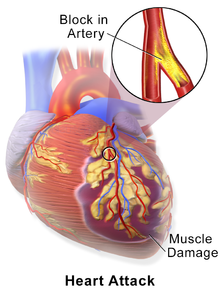
- Ischemic stroke which is similar to a heart attack, the difference being it affects the blood vessels of the brain instead of the heart.
- Atherosclerosis is another major killer and is the precurser to AMI and stroke. It is a disease of the arteries where plaque, made up of calcium, fat, cholesterol, fibrin and other substances, hardens and causes blockages.
- Inflammation, now generally regarded as being the start of many of the diseases we contract.
- Hypertension or high blood pressure, sometimes known as the silent killer and is another precurser to the conditions above.
- Diabetes type II where the cells are resistant to insulin so glucose is unable to enter the cell membrane.
- Cancer It is estimated that one in two men and one in three women will develop cancer sometime in their lives; a horrendous forecast.
- Sepsis worldwide figures show that 1 death in 5 is from Sepsis
Other illnesses
Other conditions that cause no end of misery and stress, with stress being a precursor to the above problems. So, if you suffer from any condition, your body is under more stress than if you were healthy and stress free. You are at risk of have one of the above life threatening diseases if you have:
-
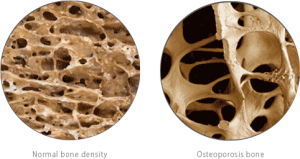
Osteoporosis Osteoporosis a condition that weakens bones, making them fragile and more likely to break.
- Asthma a respiratory condition causing difficulty in breathing because of attacks or spasms in the bronchi of the lungs.
- Migraines characterized by recurrent headaches that can be severe enough to disable the sufferer.
- Convulsive disorders such as epilepsy and narcolepsy.
- Alzheimer’s progressive mental deterioration, mostly occuring in the older generation, due to a degeneration of the brain.
- Angina caused by severe muscle spasms in heart muscles.
- Adrenal Fatigue caused by chronic stress, anxiety and panic attacks.
- Fibromyalgia or fibrositis has an array of symptoms, all unpleasant with the incidence of this condition is rapidly rising.
- Kidney Stones most of which are calcium stones, usually in the form of calcium oxalate.
- Depression a mood disorder characterized by feelings of despair, dejection, melancholy and sadness.
- Insomnia which presents as a habitual inability to sleep.
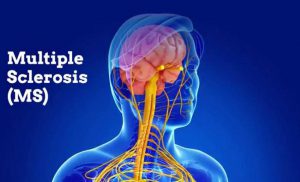
- Mitral Valve Prolapse an abnormally thickened mitral valve leaflet which prevents efficient opening and closing into the left atrium of the heart.
- Neurological disorders is any disorder of the nervous system such as Parkinson’s Disease and Multiple Sclerosis.
All of the above…
All the above diseases and conditions (and there are many more too numerous to mention) are caused and/or exacerbated by the lack of one single vital nutrient mineral.
A vital element ignored
Some eminent doctors recognise the importance of this element, but the majority of the medical profession ignore its existance. They will not recommend supplementing with it and would prefer to prescribe a drug. What’s more, the majority of medical professionals do not recommend this nutrient to their patients. This despite its proven protective capabilities, to avoid the onset of dangerous diseases in later life.
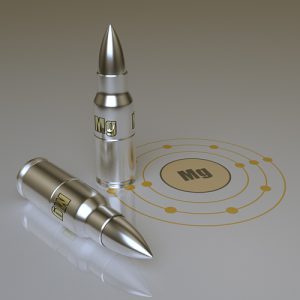 The ignored silver bullet
The ignored silver bullet
This is a silver bullet that is being ignored by many, but thankfully not by all of the medical community. Some of our medical doctors who are or have been practicing allopathic medicine have turned to naturopathic treatments. They advocate treating with natural vitamins and minerals in preference to pharmaceutical drugs. As long as they know that the natural treatment is more remedial. They use drugs as a last resort and not in preference to a natural solution.
All the above conditions and diseases have been exacerbated or caused by a mineral deficiency. That mineral is Magnesium (Mg). Stress is the biggest depleter of Mg and unfortunately, we are all under all kinds of stress.
A medical myth
There is also a medical myth that many people, particularly women, are deficient in Ca. This is believed by many doctors and medical practioners alike. Consequently the public consume Ca supplements to excess. They wrongly think that the more they consume the better. In fact, they are seriously damaging their health with a toxic overload of this vital, but overly consumed mineral.
Breast cancer
A group of 1,170 women who had breast cancer were followed after diagnosis for a term of just over 7 years. It was found that their magnesium levels were associated with their all cause mortality. This means the higher intake of magnesium the lower risk of death from all causes. What’s more, the researchers found that higher levels of magnesium in the body may significantly improve survival following breast cancer. Interestingly, they also found that the Ca:Mg ration was very important. The more calcium compared to magnesium, the worse your chances of survival.
Dr Thomas Levy – board certified cardiologist
Have a look at this short video of an interview with Dr Thomas Levy about the dangers of high Ca levels compared to Mg. It’s only 2 minutes long but full of information that you need to know for your future good health!
Astounding studies
Here is another similar study on the amazing outcome of taking Mg. A study done back in 2003, aimed at analysing the long term survival and cardiac function of 194 AMI patients using Mg. 96 patients received a 48 hour intravenous Mg sulphate of 22g with the other group of 98 having a placebo. After a follow up of nearly 5 years, all cause mortality and cardiac mortality were significantly lower in the Mg group compared to the placebo group. There was absolutely no doubt that the group having just that one 22g infusion of Mg had a reduced all cause mortality. Think of the benefits of having a Mg supplement on a daily basis not just over 48 hours!
And in 2011
Another study in 2011 found a reduction in all-cause mortality after a period of 10.1 years. Those who were Mg deficient had 10.95 deaths per 1000 person years. Those taking Mg supplement had 1.45 deaths per 1000 person years. Specifically for cardiovascular disease, those who were Mg deficient had 3.44 deaths per 1000 person years and those replete in Mg had 1.53 deaths per 1000 person years.
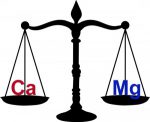 A fine balance
A fine balance
Mg and Ca are in a constant dance and should be taken into the body in equal measures. A ratio of 1:1 is the target for the best balance. Our diet and all the junk food, sugary cakes and biscuits and sodas, is nearly always low in Mg. In turn, this gives the body a toxic overload of Ca by default. Mg resides in our cells whereas Ca should reside outside of our cells. Without the control of Mg, Ca floods our cells and unless ushered out in double quick time by Mg, the cell will start to die.
Why do we succumb?
All the above listed diseases, have a number of negative factors:
Stress
Stress comes in all forms such as emotional stress, like relationships, financial worries, work related issues, food related stress like junk food and sugary drinks devoid of nutrition, environmental stress like exposure to toxins and pharmaceutical drugs. The body has to deal with all of these stressors and to cope, it uses up massive amounts of Mg. You can include physical stress like exercise and working out too. A disease or condition puts the body under constant Mg depleting stress on a daily basis.
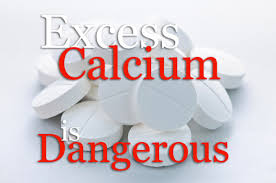 Mg deficiency
Mg deficiency
Most medical practioners see the main electrolytes as potassion (K), sodium (Na), calcium (Ca), and Chloride (Cl). For some strange reason which eludes me, they forget the most important mineral, the one that controls the others, magnesium (Mg).
An excess of Ca
Mg works hard to regulate Ca by activating hormones that control the levels and placement of Ca within the body. Inadequate Mg means that Ca runs amok and starts migrating around the body and into the soft tissue and vascular system. Excessive Ca can damage your sympathetic nervous system (SNS) which controls your unconscious functioning and reflexes.
The SNS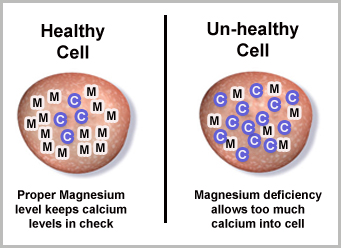
The SNS is responsible for initiating the ‘fight-flight’ response and triggers the inflammatory process. Without Mg, Ca will overstimulate your SNS and set in motion an inflammatory cascade which again increases already high levels of stress hormones. This creates more stress contributing to more Mg depletion which produces a vicious circle of Mg deficiency.
Energy production.
Our energy is produced in the mitrochondria, tiny organelles found in our cells. Muscle cells have an abundance of mitrochondria because of the work they have to do. Without Mg, the heart cannot make the energy it needs to function properly. Adenosine Triphosphate (ATP) is the energy currency of our body and enables the body’s fundamental metabolic processes. But before ATP can be activated it needs to be bound to a Mg ion, forming a new compound known as Mg-ATP enabling the energy to then be used by the cells.
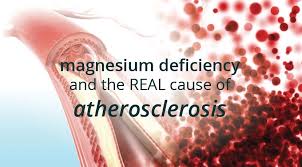 The hard working heart
The hard working heart
Because the heart works harder than any other organ in the body, it needs copious amounts of Mg-ATP. If Mg is depleted, the heart muscle cells cannot work efficiently and the ability to pump blood around the vascular system will be impaired. The heart muscle cells will slowly begin to deteriorate, starve and die.
Did you know
The human heart cycles around 6kgs of Mg-ATP per day!! For the whole body, the amount is 70kg per day! This is according to the renowned Professor Sir Martyn Poliakoff of Nottingham University in the UK.
Calcium is a double edged sword!
When we die, our cells are flooded with Ca which starts the death throws of our body, heralding the start of rigor mortis. If Ca is allowed to stay in the cell, it will kill it.
99% of Ca should be in bone tissue
Ca is a vital mineral but it needs to be in the right place, mainly in the bones. Our bodies contain around 1kg of Ca with 99% of it stored in the bone tissue. The remaining 1% circulates in the blood and other fluids.
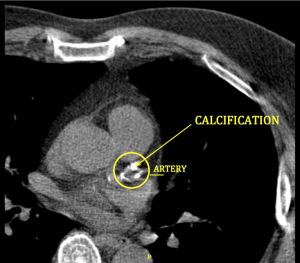 In a nutshell
In a nutshell
So here we have it. Various stressors including excess Ca help cause a Mg deficiency. The Mg deficiency causes an electrolyte imbalance and loss of energy. This in turn causes a malfunction in the cardiovascular system (as well as other parts of the body). As a result, the heart cells start to die and the arteries become damaged. Inflammation sets in with plaque and Ca deposits building up in the heart and arteries. Heart disease ensues in forms of atherosclerosis, cardiac arrest, hypertension, stroke, heart attack etc..
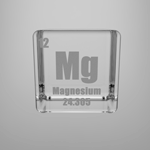 Don’t ignore Mg
Don’t ignore Mg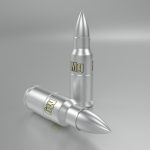
Mg is the nearest thing you will get to a silver bullet. Being replete in this vital mineral will protect you from numerous diseases and conditions so get your silver bullet now and supplement with a good quality Mg supplement.
Have you had a CCS?
 If you’ve had a coronary calcium scan (CCS) and it shows you have Ca buildup in your arteries, you can take a Mg supplement along with vitamin K2 MK-7 (menaquinone 7). See my article for the lowdown on this vitamin which actually aids Mg to usher Ca back into the bones by activating MGP (matrix gla protein) found in the vascular system.
If you’ve had a coronary calcium scan (CCS) and it shows you have Ca buildup in your arteries, you can take a Mg supplement along with vitamin K2 MK-7 (menaquinone 7). See my article for the lowdown on this vitamin which actually aids Mg to usher Ca back into the bones by activating MGP (matrix gla protein) found in the vascular system.
 , if the test is positive, it is Ca deficiency that will be presumed and a suitable supplement or diet plan prescribed. As a result, a Mg deficiency, which is more likely to be the case, is overlooked, exacerbated and depleted even lower, causing more problems and symptoms.
, if the test is positive, it is Ca deficiency that will be presumed and a suitable supplement or diet plan prescribed. As a result, a Mg deficiency, which is more likely to be the case, is overlooked, exacerbated and depleted even lower, causing more problems and symptoms.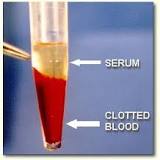 It’s no wonder that most doctors think it is very rare to be Mg deficient. They get this duff information from the results of serum tests. The tests comes back normal and patients’ records are updated to reflect this result.
It’s no wonder that most doctors think it is very rare to be Mg deficient. They get this duff information from the results of serum tests. The tests comes back normal and patients’ records are updated to reflect this result.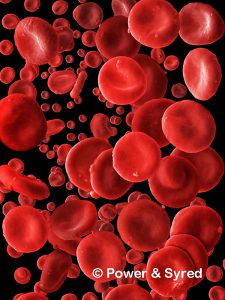 The RBC (red blood cell) test
The RBC (red blood cell) test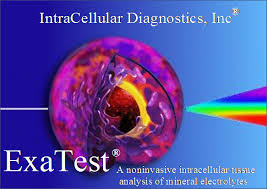 How it works
How it works He had heard of the EXATest in 2014 and decided to get it done. After much searching, he found a naturopath that offered the test. The total fee, was a little over $700 but I understand that the cost has come down markedly since then. The result of his test, done just two months after the 2nd serum test, showed him to be Mg deficient, well below the normal range, despite the serum test showing twice that he was in the middle of the normal range.
He had heard of the EXATest in 2014 and decided to get it done. After much searching, he found a naturopath that offered the test. The total fee, was a little over $700 but I understand that the cost has come down markedly since then. The result of his test, done just two months after the 2nd serum test, showed him to be Mg deficient, well below the normal range, despite the serum test showing twice that he was in the middle of the normal range.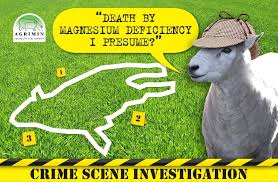 In my mind, it would be better not to test at all and just give the patient some good quality Mg. Why is the medical profession not listening to the research that has proven that a large majority of the population is Mg deficient. After all it is not a drug, it is a natural mineral that we all need; us, all other animals and all plant life. Even our farm animals are treated better than us with respect to Mg. Ever heard of
In my mind, it would be better not to test at all and just give the patient some good quality Mg. Why is the medical profession not listening to the research that has proven that a large majority of the population is Mg deficient. After all it is not a drug, it is a natural mineral that we all need; us, all other animals and all plant life. Even our farm animals are treated better than us with respect to Mg. Ever heard of 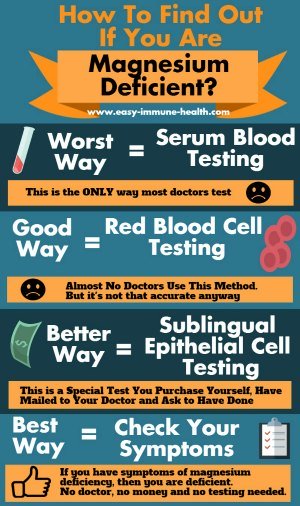 ADHD, anxiety, arrhythmia, asthma, atherosclerosis, atrial fibrillation, brain fog, chronic fatigue syndrome, confusion, constipation, cystitis, depression, diabetes, fibrositis, fibromyalgia, headaches, heart disease, high blood pressure, hyperactivity, hypoglycemia, insomnia, irritable bowel syndrome, kidney disease, liver disease, memory loss, migraines, mitral valve prolapse, muscle spasms, muscle weakness, nerve problems, numb hands and feet, osteoporosis, polycystic ovarian disease, preeclampsia, raynaud’s syndrome, restless legs syndrome, shortness of breath, seizures, stroke, syndrome X, tooth decay, tremor, twitches and tics, vertigo.
ADHD, anxiety, arrhythmia, asthma, atherosclerosis, atrial fibrillation, brain fog, chronic fatigue syndrome, confusion, constipation, cystitis, depression, diabetes, fibrositis, fibromyalgia, headaches, heart disease, high blood pressure, hyperactivity, hypoglycemia, insomnia, irritable bowel syndrome, kidney disease, liver disease, memory loss, migraines, mitral valve prolapse, muscle spasms, muscle weakness, nerve problems, numb hands and feet, osteoporosis, polycystic ovarian disease, preeclampsia, raynaud’s syndrome, restless legs syndrome, shortness of breath, seizures, stroke, syndrome X, tooth decay, tremor, twitches and tics, vertigo.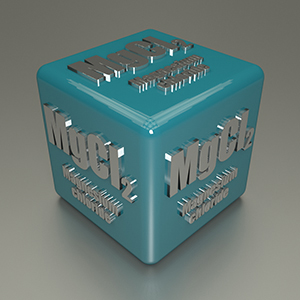 Many people ask me which is the best magnesium (Mg) supplement to take and I always answer Mg Chloride (MgCl2). Then there’s the inevitable second question. What is Mg Chloride? Before I can answer there is often a 3rd question. Why do you recommend Mg Chloride rather than any other Mg supplement?
Many people ask me which is the best magnesium (Mg) supplement to take and I always answer Mg Chloride (MgCl2). Then there’s the inevitable second question. What is Mg Chloride? Before I can answer there is often a 3rd question. Why do you recommend Mg Chloride rather than any other Mg supplement?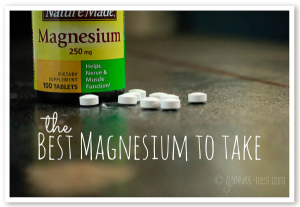 Not sure?
Not sure?
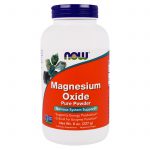 effect. OK if you want a clear out! I cannot find the official SCV of Mg oxide or some of the other salts, but I know the SCV of Mg oxide is high and is therefore strongly bonded to oxygen. Unfortunately, Mg oxide is commonly added as the dietary source of magnesium to foods and supplements, because it’s cheap. This likely produces dietary deficiencies resulting in poor health and a reduced life span. Mg oxide is at most only 4% bio available.
effect. OK if you want a clear out! I cannot find the official SCV of Mg oxide or some of the other salts, but I know the SCV of Mg oxide is high and is therefore strongly bonded to oxygen. Unfortunately, Mg oxide is commonly added as the dietary source of magnesium to foods and supplements, because it’s cheap. This likely produces dietary deficiencies resulting in poor health and a reduced life span. Mg oxide is at most only 4% bio available.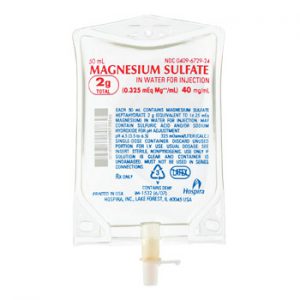 Mg Sulphate & Pregnancy
Mg Sulphate & Pregnancy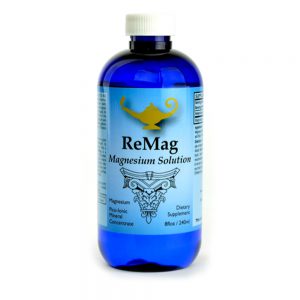 MgCl2 supplements on the market
MgCl2 supplements on the market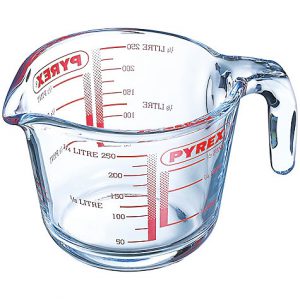 How to make up MgCl2 solution
How to make up MgCl2 solution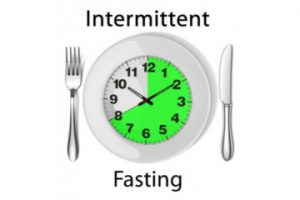 How to treat oedema
How to treat oedema
 Start Slow
Start Slow Digestion
Digestion This way of eating teaches you a lot about your own body and how different foods have different effects on you. I have come to love good foods like brocolli, nuts and berries. I now don’t want to eat bread and cakes but I do eat chocolate every evening, it is the last food I have at 8pm. I try and eat the darker variety but occassionally have a few squares of milk chocolate. I also indulge in a small glass of wine whilst I’m preparing dinner.
This way of eating teaches you a lot about your own body and how different foods have different effects on you. I have come to love good foods like brocolli, nuts and berries. I now don’t want to eat bread and cakes but I do eat chocolate every evening, it is the last food I have at 8pm. I try and eat the darker variety but occassionally have a few squares of milk chocolate. I also indulge in a small glass of wine whilst I’m preparing dinner.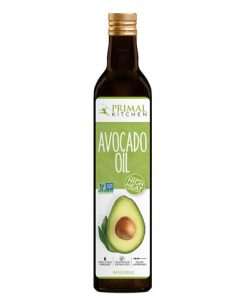
 The super veggie is broccoli from the cruciferous family. Cruciferous veggies are the best! Eat grass fed meat if possible and definitely avoid meat from intensively farmed animals and farmed fish. I know the best foods are the dearest but try and eat as much fresh organic food as you can afford and make an effort to do your own cooking. That way you will know exactly what goes into your meals.
The super veggie is broccoli from the cruciferous family. Cruciferous veggies are the best! Eat grass fed meat if possible and definitely avoid meat from intensively farmed animals and farmed fish. I know the best foods are the dearest but try and eat as much fresh organic food as you can afford and make an effort to do your own cooking. That way you will know exactly what goes into your meals. To avoid an imbalance, make sure your intake of Mg’s sister mineral Ca is not excessive. Don’t take Ca antacids such as ‘Tums’. These antacids allow you to consume 3000mg of Ca each day. No way will you be able to balance that with 3000mg of Mg, and that doesn’t include your normal daily consumption of Ca which is fortified in many foods by the food manufacturers. Excess Ca is dangerous!
To avoid an imbalance, make sure your intake of Mg’s sister mineral Ca is not excessive. Don’t take Ca antacids such as ‘Tums’. These antacids allow you to consume 3000mg of Ca each day. No way will you be able to balance that with 3000mg of Mg, and that doesn’t include your normal daily consumption of Ca which is fortified in many foods by the food manufacturers. Excess Ca is dangerous! We all get old
We all get old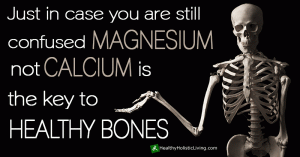 you succumb. It will be put down to genetics and/or old age. Your bones will suffer and Ca will be allowed to run riot in your soft tissue causing calcifications where it settles. You will become stiff, achey, depressed and will slowly lose your quality of life. Just have a think for a moment and wonder… How many pharmaceutical drugs do you know that actually cure a condition?
you succumb. It will be put down to genetics and/or old age. Your bones will suffer and Ca will be allowed to run riot in your soft tissue causing calcifications where it settles. You will become stiff, achey, depressed and will slowly lose your quality of life. Just have a think for a moment and wonder… How many pharmaceutical drugs do you know that actually cure a condition? This is Part 2 of Drugs! Are you on diuretics?
This is Part 2 of Drugs! Are you on diuretics? 
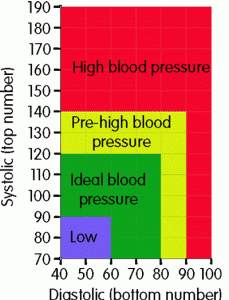 120/80 is just an average
120/80 is just an average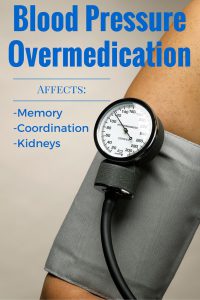
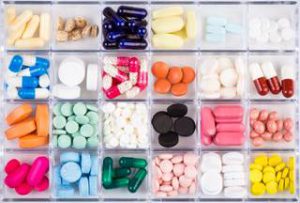 Kidneys have to deal with all drugs
Kidneys have to deal with all drugs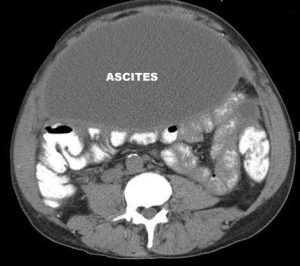

 Diuretics? Why not try walking!
Diuretics? Why not try walking!